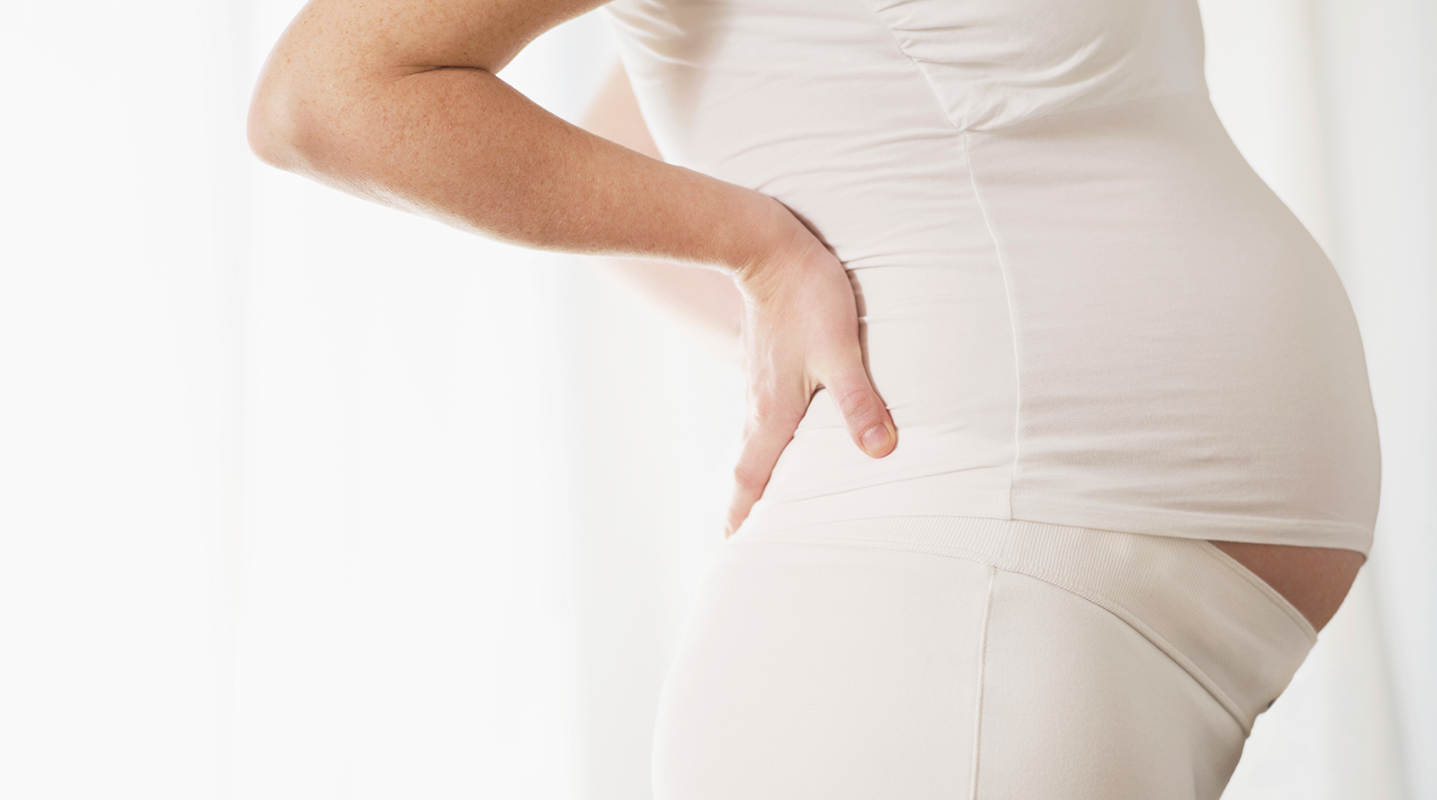Debunking Myths About Pregnancy and COVID 19 Vaccine
August 30, 2021

With so much misinformation about the safety of the COVID-19 vaccine, we understand many women who are planning to conceive or expecting a baby have questions about getting the vaccine. Laurie Scott, MD, the medical director of Maternal-Fetal Medicine Program at Memorial Healthcare System, answers some of those common questions and concerns below based on the conversations she's having with her patients about the vaccine and pregnancy.
Are you seeing more pregnant women being admitted to the hospital with COVID-19?
We have definitely seen a significant increase from last year and a surprising way in the midst of last summer when it was so busy, we were having our greatest surge. I usually had maybe one or two patients with COVID who were admitted. About half of them tended to be patients who were admitted for other reasons.
In the course of the initial surge, there were a couple of [pregnant] patients in the ICU who recovered, but most of the patients that we had last summer last spring ended up with mild or moderate disease and did not require the significant stay in the ICU.
What's really different this time is the sheer numbers of pregnant women that we are now having who are infected with COVID.
For example, last week, of the 15 patients I had on my antepartum service, 10 of them had COVID. Three were in the ICU, two or three others were in the Intermediate Care Unit, and the rest were on the regular antepartum floor. None were asymptomatic. They had all been admitted specifically because of their COVID symptoms and all of them required oxygen and treatment.
So a very significant increase in the numbers and a significant increase in the severity of the disease, which is perplexing because I would have thought that with the new surge, you would have seen a similar proportion to what we were seeing last summer last spring. This surge seems to be more significant for women of reproductive age and those who are pregnant at this time. Our biggest concern is the maternal pneumonia and the other symptoms they are having just from the disease itself.
Are pregnant women with COVID-19 experiencing complications during pregnancy?
Maternal complications are the same as anybody else: pneumonia, respiratory failure needing to be on the ventilator, and the inflammation associated with the later stages of the disease, which can cause:
- renal failure,
- heart failure,
- problems with their blood clotting,
- clotting in their lungs or strokes, etc.
So the disease itself has a similar severity and risk of death, and higher in pregnant women compared to non-pregnant women who also contract the disease with the same type of complications.
In addition, pregnant women have the risk of the complications of the pregnancy. While COVID does not appear to cross the placenta or directly infect the baby except in exceedingly rare cases, the baby's well-being is obviously significantly influenced by the mother. When mom is sick, that creates a hostile environment for the baby.
- High fever can cause the baby's heart rate to go up.
- Low oxygen levels can cause the baby's oxygen levels to go down.
- Inflammatory process may increase the risk for preterm labor and preterm delivery apart from her own risk or need for delivery.
Some moms have had to deliver prematurely because their condition deteriorated so much we felt like it was unsafe for her to continue the pregnancy. We've also had babies born prematurely because the disease process itself caused labor or a non-reassuring fetal condition, and we had to deliver for the sake of the baby.
That's true for any major illness, but it does seem to be a particularly of concern for us with COVID.
What treatments are being used for pregnant women with COVID-19?
Pregnant women are receiving the same treatment as nonpregnant patients. They are separated from non COVID infected patients on special floors and rooms. Rooms are separated on the antepartum units and in labor and delivery specifically for pregnant moms or laboring moms who have COVID. In addition, negative pressure and isolation rooms have both been set up for them.
All the medications being used to treat COVID we feel are safe to use during pregnancy.
- Antiviral
- Remdesivir
- Dexamethasone
- Monoclonal antibodies
- Anti-inflammatory medications for patients with high levels of inflammation
Is the COVID-19 vaccine safe for pregnant women?
Many women are concerned about taking anything while they're pregnant. I understand their reluctance to take the vaccine since it is a newer vaccine.
Most of our COVID patients (around 98%) have not been vaccinated and have not had COVID previously.
Interestingly, we have had a fair number of patients who have had COVID previously who are still infected. So having had COVID previously is not a guarantee that you won't get infected, just as having had a vaccine is not a guarantee that you will not get infected.
However, the immunity that comes from the vaccine seems to be more robust than the immunity that comes from natural infection.
Women infected with COVID who've been vaccinated, before or during their pregnancy, are less likely to:
- Have the severe complications of COVID
- Need hospitalization
- Have adverse complications during pregnancy (i.e., premature delivery and low oxygen for their baby)
Initially there was a question about the safety of the vaccine during pregnancy because we didn't have a lot of data after the initial trials of the Pfizer, Moderna, and Johnson & Johnson vaccines since there weren't a lot of pregnant women included. But, the information that we had was reassuring.
Original recommendations from the American College of Obstetricians and Gynecologists (ACOG) and the Society for Maternal-Fetal Medicine (SMFM) was that pregnant women should not be discouraged from getting the vaccine. Rather, they should be included in trials and offered the opportunity to have the vaccine. Today, ACOG and SMFM are strongly encouraging pregnant women to receive the vaccine. The COVID-19 vaccine:
- Is deemed to be safe.
- Does not cause problems for the baby.
- Antibodies provide protection for mom and baby.
Should pregnant women and women planning to conceive get the COVID-19 vaccine?
We are strongly encouraging women who are pregnant, planning to become pregnant, and are postpartum to become vaccinated as soon as possible. In addition, all of their immediate family members or anyone in the household who would be eligible for the vaccination should be vaccinated as well.
It is important that you understand, however, the vaccine is not 100% protective. It is, however, better than 95% protective against you have a severe case.
There's a certain percentage of patients who get the vaccine (at least six percent,) who may still have severe COVID or even die from the disease. But 94% to 95% of people who get vaccines if they have a breakthrough infection (or either asymptomatic (no symptoms) or have very mild infection, it's also important to know that they can still spread the infection, even if they're asymptomatic or mild.
Can the COVID-19 vaccine affect my fertility?
Many women are preferring not to get the vaccine before they get pregnant. They're also not having their daughters get vaccines because they're afraid it may impact future fertility.
That is not true.
There is no vaccine on the market, COVID or otherwise, that decreases a woman's ability to become pregnant either now, immediately or in the future. They have no effect on the normal ovarian production of hormones and ovulation or anything else with fertility.
Some key things to know is the vaccine does not:
- Cause problems with fertility or menstrual cycles
- Cause harm to unborn babies
- Incorporate into the maternal or fetal DNA
- Change the DNA
Can the COVID-19 vaccine hurt my baby?
There are no components in the vaccine that can cause harm to the baby. Neither the virus or vaccine components cross the placenta, so there is no harm to your baby.
When anyone gets vaccinated, there's a little piece of replicated material (RNA) that is introduced. However, it is not a live virus, cannot cause infection, and does not get incorporated into the DNA. It is enough to trigger the immune system to respond in the same way that the natural virus would provoke the immune system to respond. That little piece of RNA, which is what the Pfizer and Moderna vaccines provide, provokes the immune system to say, hey, this doesn't belong here.
The vaccine creates antibodies, which act like police by identifying things that aren't supposed to be in your body. Those antibodies remove that component of the vaccine, so it's not left in the body. Once this happens, the antibody response is mounted and they cross the placenta and go to the baby to provide protection to the baby. The same thing happens when we have chicken pox, measles or mumps vaccines.
Those antibodies are also in breast milk if mom had the vaccine and breastfeeds her baby post-delivery; so the baby gets all the advantages of those antibodies.
Is the COVID-19 vaccine made from aborted fetuses?
The vaccine is not made directly from aborted human tissue.
Johnson & Johnson's vaccine was derived from a clone of a cell line from tissue that came from an aborted fetus from many years ago. Pfizer and Moderna's vaccines were never related to any cell lines that came from aborted tissue.
Is the COVID-19 vaccine safe?
People are afraid of the risk associated with the vaccine. So far, it has a very good safety profile.
There certainly can be side effects when you receive it. Like most people describe some arm pain, fever, or they may feel very fatigued for a day or two. Most people who get it have very little significant side effects. Occasionally, some people feel like they have the flu after getting vaccinated. There have been some rare side effects that were serious that have been reported for different vaccines, but these are occurring in less than one in a few million patients.
To put it into perspective, there have been over 200 million people in the U.S. who have received at least one doses of vaccine. Of those people who received at least one dose of vaccine, there's been a report of about 6,600 patients who have died subsequent to getting the vaccine, but that has not been proven to be related to the vaccine.
Compare that to to 32 million people who have had COVID-19 and over 600,000 people who've died from it.
I can never say that anything is completely without risk. But when we look at the difference in the risk of getting the disease, having severe COVID and dying from it, compared to getting the vaccine and having a severe side effect from the vaccine, clearly, the safest thing is to get the vaccine.
Video With Transcript


